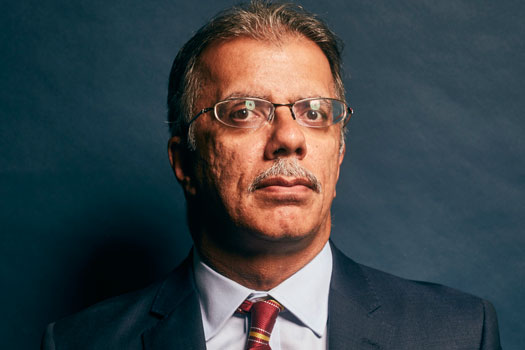NHS England primary care director ‘sorry’ for comments about small practices

NHS England’s director of primary care Dr Arvind Madan has apologised for suggesting GPs should be ‘pleased’ when small practices close.
In a bulletin to GP practices, sent out by NHS England, Dr Madan said he wants to help small practices ‘thrive’ by helping them transform by joining larger primary care networks.
As Pulse revealed on Wednesday, Dr Madan has suggested that GPs should be ‘pleased’ when small practices close, as there are ‘too many’ of them struggling to meet patient demand.
In response, the BMA called for ‘immediate clarification’ of the comments, while pressure group GP Survival is calling for Dr Madan’s resignation.
Dr Madan said: ‘To be clear, it is not NHS England’s view that GPs should be pleased when small practices close, nor is it mine. On the contrary, we are doing what we can to support all practices and help them thrive and I am sorry if you felt my comments reported by Pulse magazine were not supportive of you and smaller GP practices.’
But according to Dr Madan ‘many small practices find it hard to provide the wide range of services we would want for ourselves and our families’.
‘This is why we are helping join up practices into primary care networks to share resources and build resilience. GPs are able to work with a more diversified team, develop specialist areas of interest and work across groups of practices,’ he said.
He said the ‘involvement’ of NHS England ‘creates an opportunity to systematise support for this strengthened version of primary care that enriches the offer to our patients, drawing in support from a wider range from other professionals to work alongside GPs’.
‘Not only will this help us manage the workload, but it also means patients can get their care closer to home and, where appropriate, out of hospital,’ he continued.
RCGP chair Professor Helen Stokes-Lampard said that the college knows that ‘many smaller practices provide care that is highly rated by patients, and research has shown that they can be particularly good at delivering continuity of care, which patients and GP teams value greatly’.
But she added that it also regognises ‘the benefits of large-scale working in general practice, such as the ability to pool resources in the best interest of patient care’.
She added: ‘Far from celebrating the closure of small practices, decision-makers should focus on how to best support GPs practising in surgeries of any type and size, and how we can retain the qualities that we know our patients value greatly in smaller practices and replicate them across general practice as a whole.
‘Many of our members will have deemed Dr Madan’s reported comments out of touch and unhelpful given the intense resource and workforce pressures, under which they are currently working. We are pleased that he has since issued a clarification recognising that smaller practices are often the cornerstone of many communities and assuring GPs of NHS England’s desire to support all practices.’
However, GP leaders have pointed out that Mr Madan’s stance ignores the reality that some practices are simply unable to transform or upscale.
Pulse found earlier this year that 1.3 million patients had to move surgery after their own had closed, following 450 closures over the past five years. In 2013, only 18 practices closed.
And in 2016 Pulse revealed that Paul Twomey, medical director of the Yorkshire and Humber NHS England area, sent an email to practices saying vulnerable practices must ‘transform…or be allowed to fail and wither’. NHS England immediately denied this was national policy.










